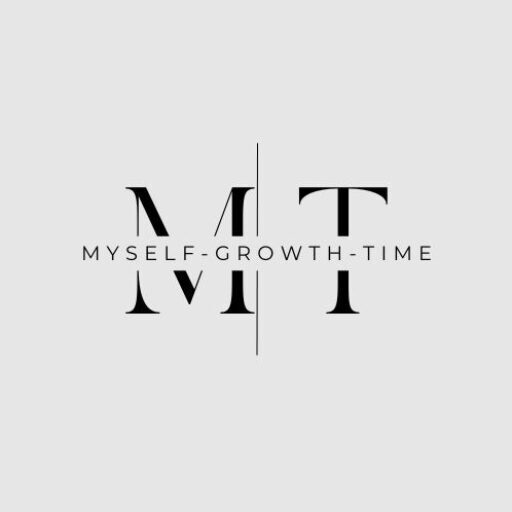An interview is a critical opportunity to make a strong impression and showcase your qualifications and suitability for a job or educational program. While preparation is essential, knowing what to do during an interview is equally important.
10 Things To Do During An Interview
From body language and active listening to asking thoughtful questions and highlighting your accomplishments, there are several key actions you can take to maximize your chances of success. In this article, we will explore important things to do during an interview, providing you with valuable insights and practical tips to navigate the interview process with confidence and professionalism.
1. Listen Carefully
There are two primary components to communication. conversing with people and keeping an open ear out for others.
This entails waiting for your turn to speak while paying close attention to what the interviewer is saying to ensure you understand. Anytime you interrupt someone, it is impolite and conveys the wrong message.
2. Answer Questions Truthfully
Just like on your resume, lying at an interview is strictly prohibited. Eventually, you’ll be exposed, and it won’t look good. While it’s unlikely that you’ll be asked many questions that will make you want to lie, many people feel compelled to duck inquiries about topics like why they haven’t held down jobs for very long.
This does not imply that you have to disclose information that makes you uncomfortable (such as gaps in your resume), but you should make every effort to answer queries truthfully and pertinently.
3. Take Notes
As they get to know you during the interview, the interviewer will be making notes on you. You should also use this opportunity to make notes about them and the business. It’s possible that you’ll hear something intriguing or that you’ll need to jot down a reminder for anything you want to revisit later.
This will come in handy if you’re thinking about accepting the job offer once you’re successful and have the chance to ask questions.
4. Ask Questions
About that, remember to ask questions during the interview. This is your opportunity to learn anything you require knowledge of. You might think of questions you’d like to ask throughout the interview, but it’s always good to go prepared.
Frequently asked queries by interviewees consist of:
- What kind of culture exists at work?
- What does this role’s average day entail?
- What objectives am I supposed to meet in the first three months?
- What are the prospects for advancement?
5. Keep Your Phone On Silent (And Out Of The Way)
Although it may seem apparent, you don’t want your phone to ruin your interview because it is a distraction. Your phone on the table or making noise could give the impression that you are unkempt, especially if you check your notifications as they come in. Your interview should take up all of your attention.
During your interview, keep your phone in your pocket or purse and turn it off so it doesn’t ring. Make sure the screen is looking down if you must place it on a table to avoid being tempted to look at it.
6. Be Honest And Stay Positive
One of the most crucial things to accomplish is to not lie on your resume or in an interview, as we’ve already covered a little. Maintaining an optimistic outlook is another!
This entails maintaining your optimism and self-belief while simultaneously expressing it outward through your speech. You should be upbeat when discussing your professional experience. It’s acceptable to bring up unfavourable experiences you had with coworkers or prior employers, but you don’t want to speak poorly of them.
Instead, concentrate on the lessons you took away from the event and the positive aspects of it.
7. Use Your Body Language
Another form of communication is body language, which conveys a lot of information. It will mostly convey to your interviewer whether you are confident or nervous.
It makes no difference now if you display your nervousness because it’s anticipated. Nonetheless, the interviewer will be observing your nonverbal communication skills, so answering questions and having a good conversation may suffer if you’re nervous.
Many people find that their anxiety worsens when they realize that others can see them feeling uneasy. One useful strategy for managing your anxiety is to keep your body language in check. Sit back in your chair and put your hands on the table or fold them into your lap. Don’t lounge, though. Sitting tiny demonstrates your hiding away, whereas being open displays your confidence.
You’ll feel more at ease throughout the interview if you maintain comfortable eye contact, smile, and concentrate on the topic at hand.
8. Talk About Your Skills
Talk about your skills as well as your professional experience! Your resume is in the same boat.
Connect your teamwork, communication, problem-solving, and initiative skills by providing concrete instances of your work, such as initiatives you’ve spearheaded or worked on.
If you don’t think you have many work-related experiences to share, emphasize your accomplishments. A skills-based CV and interview highlight your potential even in the absence of significant professional experience.
9. Don’t Be Afraid To Share Your Success
It’s not necessary to brag about all of your amazing accomplishments just because you’re attempting to impress a prospective employer.
In addition to talking about these wonderful anecdotes, which you should do, you should also devote some time to discussing your team’s accomplishments. It demonstrates your ability to collaborate with people and your understanding of their value.
Saying something like, “As a team, we…” and then discussing your roles and the influence you had can be all that is needed.
10. Say Thank You
One of the tiniest things you can do is this, so don’t forget to do it! After the interview, a brief thank you expresses your politeness and your appreciation for their time. Even though it’s modest, the act has a big impact.
Saying hello when you arrive, waiting patiently for the interview to begin (and making small conversation if necessary) and shaking hands with your interviewer are further examples of being professional and courteous.
Conclusion
The interview stage is a crucial juncture in the pursuit of a job or educational opportunity, and knowing what to do during an interview can significantly impact your chances of success. By utilizing the strategies discussed in this article—such as maintaining positive body language, active listening, preparing thoughtful questions, and highlighting your accomplishments—you can leave a lasting impression on the interviewers.
Remember to be authentic, display your enthusiasm and interest, and showcase your qualifications and suitability for the role. Interviews are not just about answering questions but also about building rapport and demonstrating your unique value. With thorough preparation and the right approach, you can confidently navigate the interview process and increase your likelihood of achieving your desired outcome.
Frequently Asked Questions
How can I actively listen during an interview?
- Active listening involves focusing on what the interviewer is saying, asking follow-up questions, and providing thoughtful responses. Avoid interrupting and ensure that you fully understand the question before responding. Engage in the conversation by nodding and providing verbal cues to show your attentiveness and understanding.
Should I ask questions during an interview?
- Absolutely! Asking thoughtful questions during an interview demonstrates your interest in the role and organization. Prepare a list of relevant questions beforehand, focusing on topics such as company culture, job responsibilities, and future opportunities. This not only shows your engagement but also helps you gather important information to assess if the role is the right fit for you.
How can I effectively highlight my accomplishments during an interview?
- When discussing your accomplishments, focus on specific examples that highlight your skills and achievements. Use the STAR method (Situation, Task, Action, Result) to structure your responses and provide measurable outcomes. This allows the interviewer to understand the impact you have made in previous roles and how you can contribute to their organization.

